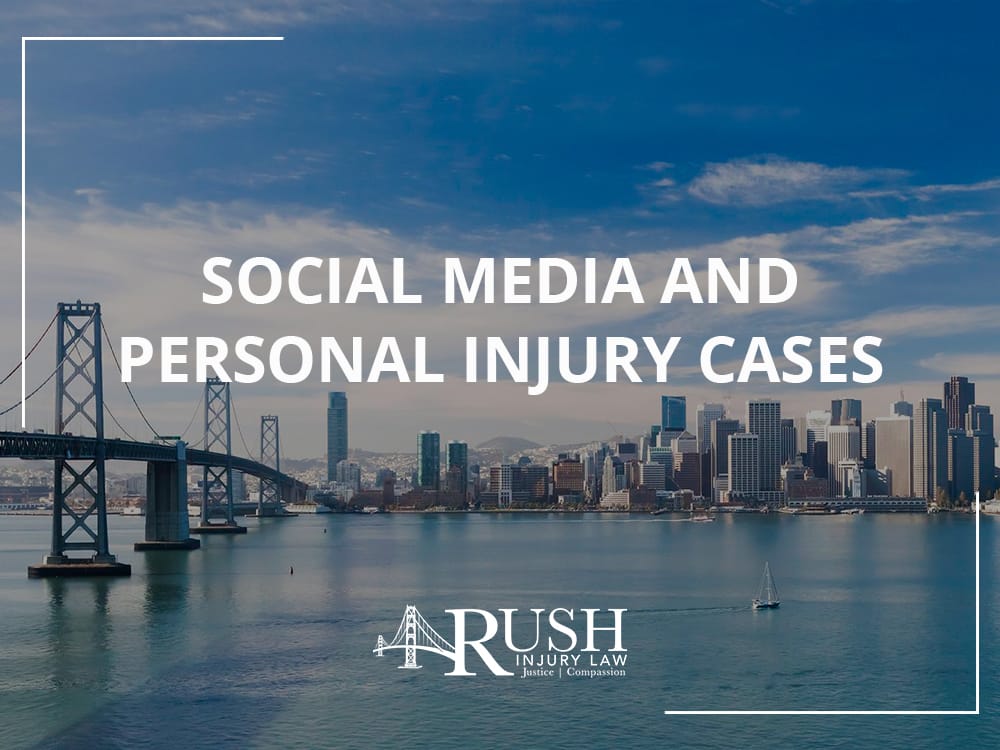Call For A Free Consultation
415-897-4801
Novato Corporate Office (Mailing Address):
10 Commercial Blvd #206 Novato, CA 94949
Offices Located In San Francisco, Oakland, San Jose, Walnut Creek, Pleasanton, Santa Rosa, Napa, Redwood City, Sacramento and Newark
Social Media and Personal Injury Cases

77% of Americans have at least one social media account. During a personal injury case, opposing attorneys can, and will, conduct backgrounds of litigants by looking through their social media profiles. In some instances, social media posts and data can be subpoenaed or admitted as evidence. Individuals have even lost personal injury cases because of social media posts.
Managing Your Social Media Accounts
Before, during, and after litigation, ensure that your social media accounts are respectable and mature. Also use common sense. If you are suing for a personal injury and claiming physical injuries, posting material of you engaging in activities like skiing or working out is unwise. Likewise, sharing images of you dancing at a bar may be damaging if you are claiming emotional distress.
Social media content can be used by opposing counsel to attack your reputation. Videos, posts, or pictures of you engaging in reckless or illegal activities can give opposing attorneys evidence that you behave in a careless or negligent manner.
Social Media Accounts as Evidence
Several court cases have allowed social media accounts to be subpoenaed and admitted as evidence in civil cases. In California, publicly posted material like Facebook posts can to be subpoenaed in a civil lawsuit.
In Mailhot v Home Depot U.S.A., the Central District Court of California allowed the defendant to subpoena particularized requests. The Defendant could obtain all social media communications between the Plaintiff and their co-workers that discussed the lawsuit. The Defendant was not afforded the right to access the Plaintiff’s entire social media accounts.
Additionally, California has also held that social media accounts that are publicly viewable can be admitted as evidence in civil cases.
As social media becomes more widely used, attorneys are more frequently requesting account information to help prosecute and defend personal injury cases.
Defamation and Social Media
California law also allows individuals to sue for libel and slander for defamatory comments and posts on social media accounts.
Although free speech protections allow you to freely express your opinions on social media, you can’t make knowingly false and defamatory comments online. While leaving an opinion on a website like Yelp sharing a negative experience at a restaurant is lawful, posting knowingly false information on a social networking site affords the victim the right to pursue legal damages.
The standards for libel and slander in California state that defamation has five elements, including that the statement must be published as a fact, that the statement is false, the statement is not privileged information, the statement reasonably causes special damages, and the person who published the statement was at least negligent. In certain instances, a plaintiff doesn’t need to show that the statement resulted in special damages to pursue a defamation claim.
If someone publicly posts a defamatory statement involving you on social media, the action can be considered defamation.
The popularity of social media impacts all phases of litigation and can create a claim for personal injuries. If you have questions about whether your social media accounts are protected, or are a victim of online defamation, contact Rush Injury Law.
Want A Free Consultation?
© 2025 Rush Injury Law. All Rights Reserved.














